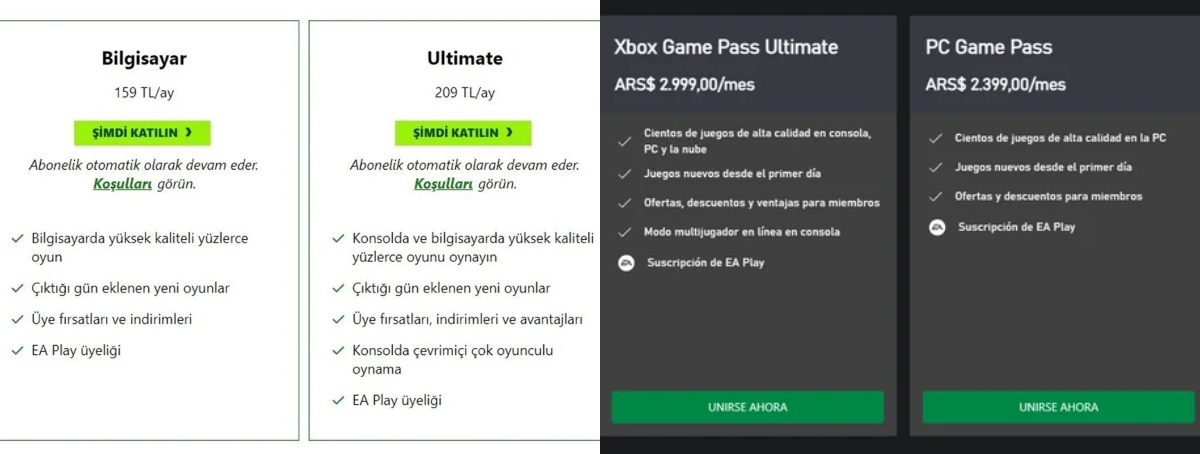Microsoft is the latest game company to recently adjust its prices in Turkey and Argentina. This comes just a few months after Game Pass subscription in these countries had already become significantly more expensive.

As reported by local media, Xbox raised prices for Game Pass earlier this week. The increase was also discussed on different subreddits.
Microsoft’s subscription service in Turkey now costs:
- Console / PC Game Pass — ₺159, up 98.7% from the previous price of ₺79.99;
- Game Pass Ultimate — ₺209, up 72.7% from the previous price of ₺120.99.
Below are the new Game Pass prices in Argentina:
- Console / PC Game Pass — ARS 2,399, up 100% from the previous price of ARS 1,199;
- Game Pass Ultimate — ARS 2,999, up 100% from the previous price of ARS 1,499.

New Game Pass prices in Turkey (left) and Argentina (right)
In August, Microsoft increased subscription pricing in most countries. At the time, Game Pass Ultimate in Turkey and Argentina increased from ₺44.99 to ₺120.99 (up 168.9%) and from ARS 899 to ARS 1449 (up 61%) respectively.
So the new hike occurred just three months after that. If we look at pre-August prices, the Ultimate tier in the two countries increased by 364.5% (Turkey) and 233.5% (Argentina).
Microsoft is not the only company to raise prices for its gaming services in recent months. In September, Sony announced new PlayStation Plus pricing, with Turkey seeing increases by up to 495%. In other regions, including the US, Japan, and Argentina, subscription prices grew by roughly 30%.
Starting November 20, Valve has decided to stop using Turkish and Argentine currencies on Steam in favor of USD. The company explained that “exchange rate volatility in Argentina and Turkey in recent years has made it hard for game developers to choose appropriate prices for their games and keep them current.”
Exchange rate volatility in Turkey and Argentina will result in more expansive games and services for local players who used to have historically cheap prices (though prices will still remain lower than in the US or Europe). This is also a way for companies to fight region-swapping, when some users switch regions of their Steam, Xbox, or PlayStation accounts to other countries to pay less money for games.
